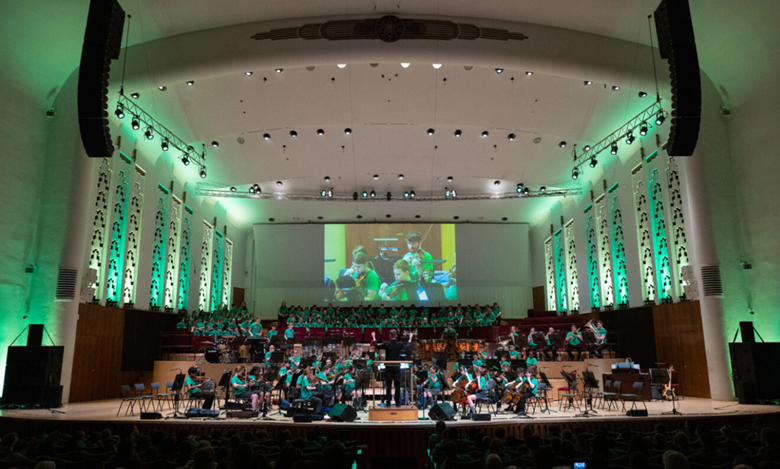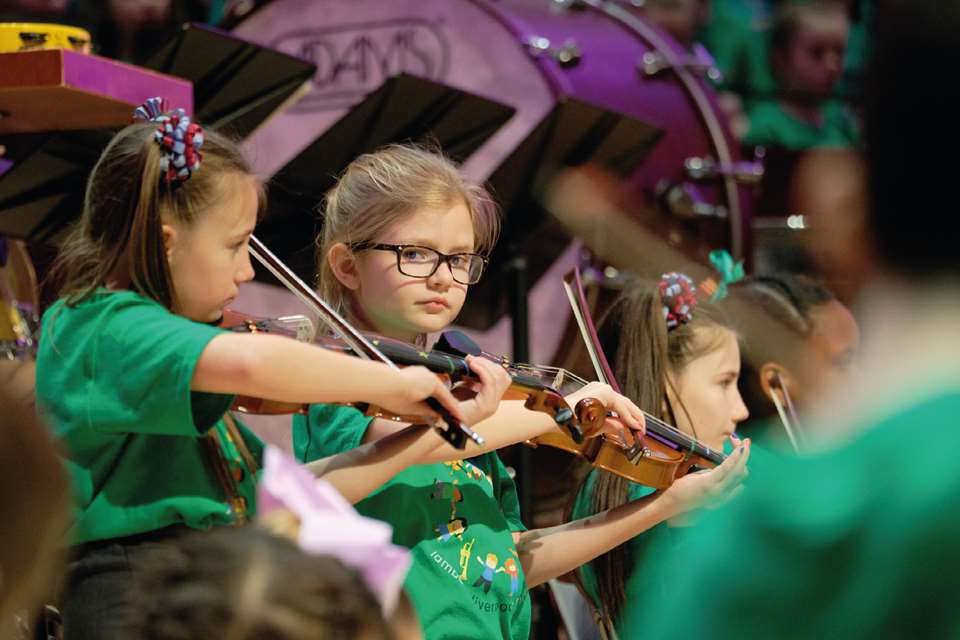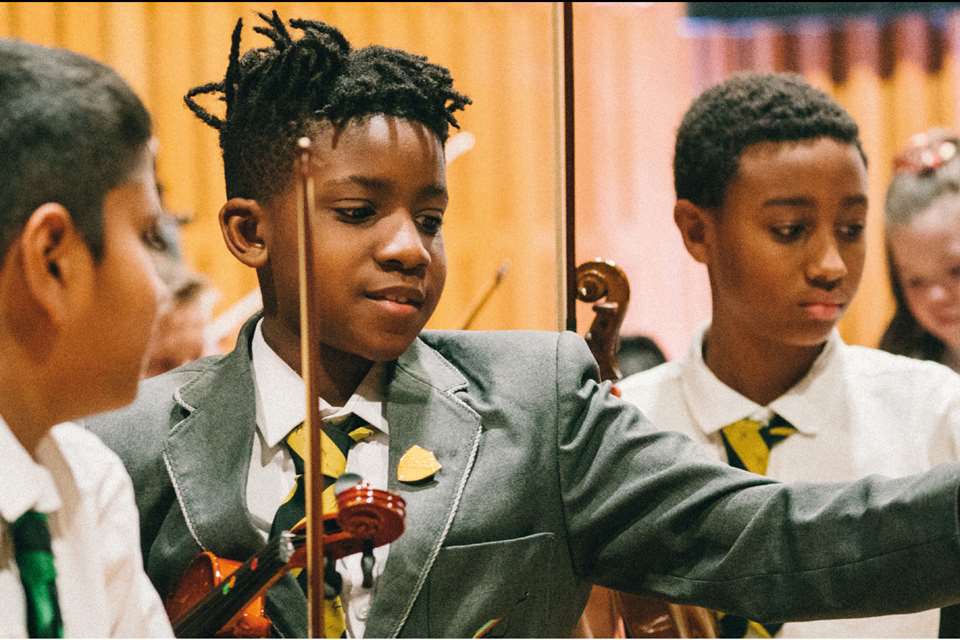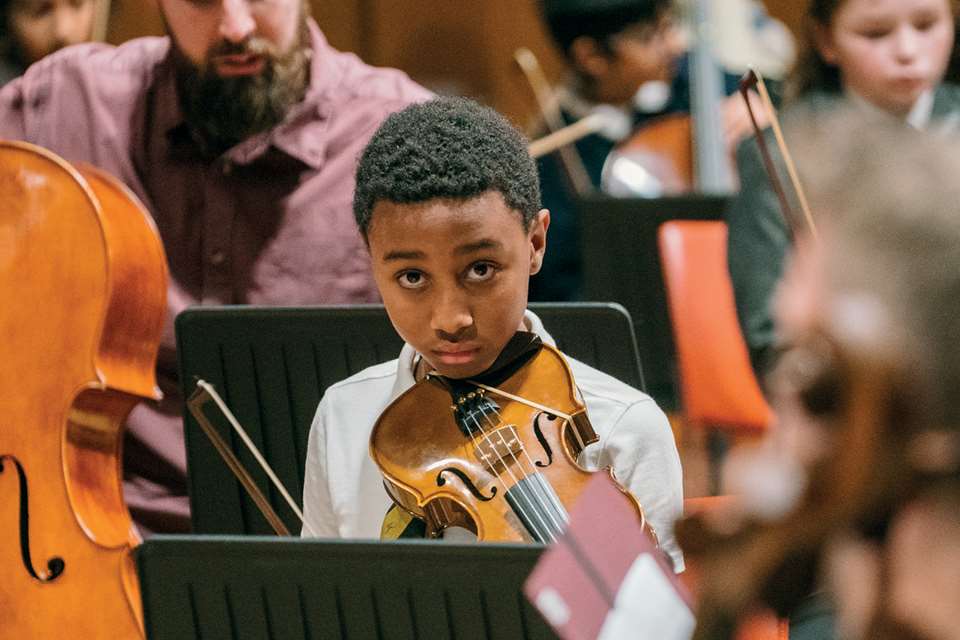Liverpool’s ‘In Harmony’ programme promotes resilience in children and families, study shows
Amrit Virdi
Wednesday, March 27, 2024
University of Liverpool publishes research demonstrating the benefits of a local programme introducing orchestral music-making to disadvantaged communities.

Royal Liverpool Philharmonic
In Harmony Liverpool, launched by the Royal Liverpool Philharmonic in 2009, has benefitted over 4,000 young people. Children and young people make music every week free of charge as part of the orchestral programme, learning an instrument, composing, singing, and performing a wide range of music in schools and venues throughout North Liverpool.
Some 1,750 children and young people currently take part within and beyond the school day, and over 40% of children involved in the programme are classed as living in poverty.
Part of a national Arts Council England initiative, In Harmony programmes are found in Lambeth, Nottingham, Telford, Stoke-on-Trent, Leeds and Newcastle-upon-Tyne, as well as Liverpool, and these aim to transform the lives of children in disadvantaged communities.
The department for psychology at the university found, in their ‘In Harmony Resilience Study’, that In Harmony Liverpool ‘promotes resilience in its children and families via increased self-confidence, skills competence, self-knowledge, the development of social skills and the ability to face challenges’.
In addition, it ‘helps to increase inclusion and a sense of belonging among its communities’, and ‘while the programme cannot remove hardship or inequalities, it can and does provide families and children with life skills and resources that they can use to manage and adapt to stress both in and outside the programme.’
The study, involving 22 parents and carers from the Liverpool programme, took place between December 2021 and February 2022. This forms part of a partnership between the Philharmonic and university researching music and its role in health and the community.
Dr Warren Donnellan, co-author of the study, said: ‘Our evidence synthesis found that musical learning is an important resource for children and young people’s social, emotional, and intellectual development. Unequal access to educational opportunities puts children and young people with fewer socioeconomical privileges at a disadvantage which is why programmes such as In Harmony are so vital. We’re proud to continue working in partnership with Liverpool Philharmonic to provide research and analysis of the impact of their long-term community programmes.’




